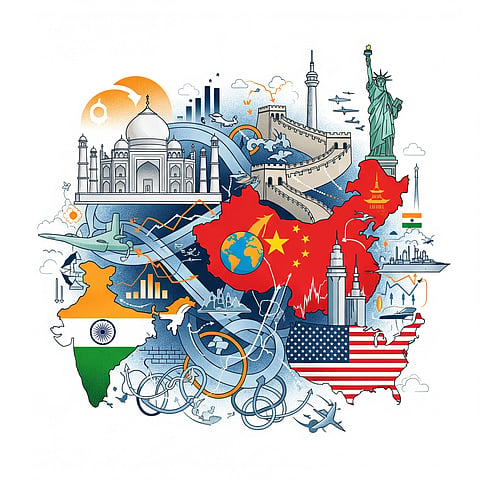

The United States' strategic policies are increasing cooperation between India and China. This is a significant development in global politics. Traditionally, these two Asian nations have had intense border disputes and economic rivalry. Still, the U.S.'s efforts to increase its dominance in the Indo-Pacific region are bringing it onto a common platform.
The 'Quad' alliance (Australia, Japan, India, U.S.) formed by the U.S. is primarily aimed at containing China. This has led to an increase in anti-U.S. sentiment in China. At the same time, despite the U.S. recognizing India as a strategic partner, India's independent stance on international issues like the Russia-Ukraine war has not been fully appreciated by the U.S. India's insistence on buying oil from Russia, defying U.S. sanctions, has sent a clear message that it cannot be completely dependent on the U.S.
In this context, India is actively engaging with China and Russia on platforms like the 'Shanghai Cooperation Organization' (SCO). India and China also cooperated on the expansion of the BRICS alliance. As an alternative to the U.S.-dominated world order, these countries are strengthening their own economic and security alliances. Some of the U.S. decisions have unintentionally brought these two neighbouring nations closer. Both countries have recognized the need to work together for mutual benefit. These developments have the potential to completely change the geopolitics of the region in the future.
